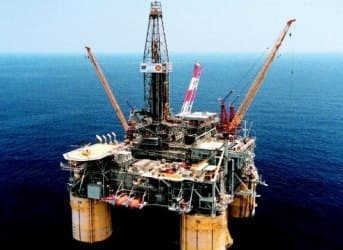The energy-poor states of the eastern Mediterranean – Israel, Lebanon and Turkey, have long been at odds have to how to divvy up their portions of the offshore eastern Mediterranean.
Israel is the wild card on the equation – as the authoritative U.S. government’s Energy Information notes in its Israel “Country Analysis” brief, “Given that Israel's total primary energy demand is significantly higher than its total primary energy production (1.0 quadrillion Btu versus 0.1 quadrillion Btu in 2011) the country relies heavily on imports to meet its growing energy needs. As of January 2013, the Oil & Gas Journal estimated Israel's proved reserves of oil at 12 million barrels and its proved reserves of natural gas at 9.5 trillion cubic feet (Tcf). While neither figure places Israel in the top-40 globally, these totals are significantly higher than they were a few years ago and position Israel to develop its hydrocarbon potential. Energy exploration over the past several years uncovered significant natural gas resources in Israel, primarily in the country's offshore areas.”
Related article: Kashagan: A Giant in the (Painfully Slow) Making
The key term here is “offshore.”
Like Turkey, Israel is a net energy importer –in 2010 Israel produced a mere 4,029 barrels per day of oil, but imported 238,000 bpd, according to the U.S. Central Intelligence Agency.
Natural gas?
In 2009, Israel produced 1.55 billion cubic meters, but consumed 3.25 bcm. Israel imports all of its oil and coal and 70 percent of its natural gas needs, leaving the government deeply interested in developing indigenous alternatives, especially as the “Arab Spring” led to Egypt halting its natural gas exports.
In March 2010 the U.S. Geological Survey released its survey of the Levant Basin, which concluded that the waters of Israel, Lebanon and Republic of Cyprus potentially contained at least 50 trillion cubic feet of natural gas yet to be discovered and that in total the Levant Basin could contain as many as 227. trillion cubic feet of natural gas and 483 million barrels of oil.
Related article: First Floating LNG Game-Changer for Uruguay
Accordingly, it is no less a question of what lays beneath the waves, but whom it might belong to.
And now, the picture gets ever more murky.
Lebanon and Israel do not have a peace treaty, and Beirut has repeatedly complained that Israel is encroaching upon its offshore Mediterranean waters
Does Israel really want to take on Gazprom and the powers behind it?
By. John C.K. Daly of Oilprice.com


















